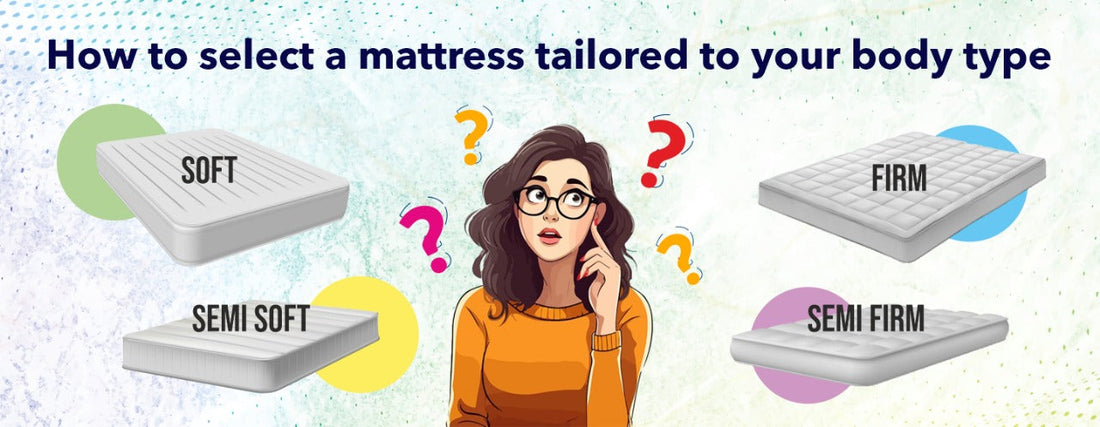When it comes to choosing the perfect mattress, one factor often overlooked is your Body Mass Index (BMI). While comfort, support, and material are key considerations, understanding your BMI can significantly impact the quality of your sleep. Here’s why BMI is crucial in mattress selection and how it helps ensure you get the restful sleep you deserve.
What is BMI and Why Does It Matter for Sleep?
Body Mass Index (BMI): is a measure of body fat based on your height and weight. It provides insights into your body type, which directly influences the kind of support you need from a mattress. For example:
Lower BMI (Underweight to Normal Range): Individuals with a lower BMI typically require a softer mattress that contours to their body, alleviating pressure points and ensuring proper spinal alignment.
Higher BMI (Overweight to Obese Range): Those with a higher BMI need a firmer, more supportive mattress that prevents sagging and promotes durability.
Key Reasons BMI Impacts Mattress Selection
Pressure Relief and Spinal Alignment a mattress that matches your BMI ensures optimal pressure relief, reducing the risk of waking up with aches and pains. Proper spinal alignment is critical for long-term health, and mattresses designed with BMI considerations can help achieve this.
Durability and Longevity Heavier individuals put more stress on a mattress. Choosing a mattress designed to support your BMI ensures it maintains its structure and comfort over time, providing better value for your investment.
Temperature Regulation BMI can affect body heat retention during sleep. Higher BMI individuals may benefit from mattresses with cooling technologies, such as gel-infused memory foam or breathable latex, to prevent overheating.
Mattress Types Based on BMI
Softy Silk 2E - Memory Foam Mattresses:
Ortho Memory - Hybrid Mattresses:
Ortho Latex Plus - Latex Mattresses:
Tips for Choosing the Right Mattress for Your BMI
Assess Firmness Levels: Softer mattresses suit lower BMI sleepers, while firmer options cater to higher BMI needs.
Consider Weight Limits: Check the manufacturer’s weight recommendations to ensure the mattress’s longevity.
Try Before You Buy: Whenever possible, test mattresses in-store
Look for Specialised Features: Cooling layers, reinforced edges, and motion isolation are essential for sleepers with higher BMI.
The Bottom Line
Understanding your BMI is a vital step in selecting a mattress that offers the perfect balance of comfort and support. A mattress tailored to your BMI can enhance your sleep quality, promote spinal health, and improve your overall well-being. By considering BMI during the selection process, you’re investing in better sleep and better health.
Start your journey to better sleep today by choosing a mattress designed with your BMI in mind. Prioritise your health and wake up refreshed every morning.




